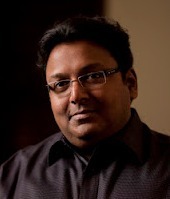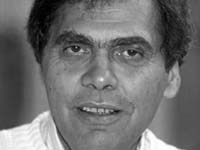Attention Span Quotes
Quotes tagged as "attention-span"
Showing 1-30 of 31

“Books are better than television, the internet, or the computer for educating and maintaining freedom.
Books matter because they state ideas and then attempt to thoroughly prove them. They have an advantage precisely because they slow down the process, allowing the reader to internalize, respond, react and transform. The ideas in books matter because time is taken to establish truth, and because the reader must take the time to consider each idea and either accept it or, if he rejects it, to think through sound reasons for doing so. A nation of people who write and read is a nation with the attention span to earn an education and free society if they choose.”
―
Books matter because they state ideas and then attempt to thoroughly prove them. They have an advantage precisely because they slow down the process, allowing the reader to internalize, respond, react and transform. The ideas in books matter because time is taken to establish truth, and because the reader must take the time to consider each idea and either accept it or, if he rejects it, to think through sound reasons for doing so. A nation of people who write and read is a nation with the attention span to earn an education and free society if they choose.”
―

“The most dangerous thing about an academic education is that it enables my tendency to over-intellectualize stuff, to get lost in abstract thinking instead of simply paying attention to what’s going on in front of me.”
― This Is Water: Some Thoughts, Delivered on a Significant Occasion, about Living a Compassionate Life
― This Is Water: Some Thoughts, Delivered on a Significant Occasion, about Living a Compassionate Life

“An exceedingly confident student would in theory make a terrible student. Why would he take school seriously when he feels that he can outwit his teachers?”
― Killosophy
― Killosophy

“She's always getting into trouble because she gets bored really really easily. [...]
My mum says it's because Celia has an attention span the size of a sesame seed.
Celia's mum says it's because Celia's identity is unfurling itself slowly, like a tulip bud, and it's a breathtakingly beautiful thing to see.”
― Feeling Sorry for Celia
My mum says it's because Celia has an attention span the size of a sesame seed.
Celia's mum says it's because Celia's identity is unfurling itself slowly, like a tulip bud, and it's a breathtakingly beautiful thing to see.”
― Feeling Sorry for Celia

“The generation that had information, but no context. Butter, but no bread. Craving, but no longing.”
― The Uncoupling
― The Uncoupling

“I get into a tearing passion about something I know very little about, and when I learn more my passion ebbs away.”
― Castle Gay
― Castle Gay

“Storytelling--that's not the future. The future, I'm afraid, is flashes and impulses. It's mode up of moments and fragments, and stories won't survive.”
― The Dream of Perpetual Motion
― The Dream of Perpetual Motion

“Pay attention to what you pay attention to.”
― The Anthropocene Reviewed: Essays on a Human-Centered Planet
― The Anthropocene Reviewed: Essays on a Human-Centered Planet
“I don't want to be looked at and grab attention, that's exhibitionism.. I would rather be seen more for my intelligence, for my elegance, for not being just another girl seeking attention. I don't want to catch someone's eyes because those kind of
attention spans are short and easily shifted to the next exhibitionist, I would rather stay in the memory as someone who refused to be a performer yet made an impact.”
―
attention spans are short and easily shifted to the next exhibitionist, I would rather stay in the memory as someone who refused to be a performer yet made an impact.”
―

“My adult life has been a patchwork of projects, most of which were fleeting fancies of overreaching vision. I tend to seize on things, only to abandon them due to a lack of time, talent or inclination.”
― The Goodbye Quilt
― The Goodbye Quilt
“I want to lengthen, not shorten, my attention span, and most of the material splendors of the twenty-first century bully me in the opposite direction. The fault is mine, I'll admit. I'm too slow-witted, reluctant to evolve, constitutionally unable to get with the program. I can't afford the newest gadgets and I'm not a natural multitasker.”
―
―

“An ambitious, paradoxical world we live in -
of short attention spans
paired with the massive fear
of being forgotten too soon.”
― Wine, Fire, Satin, Dew
of short attention spans
paired with the massive fear
of being forgotten too soon.”
― Wine, Fire, Satin, Dew

“People have been carping in this way for many centuries. Socrates feared that the act of writing would “create forgetfulness in the learners’ souls.” The sixteenth-century scientist Conrad Gessner worried that the printing press would facilitate an “always on” environment. In the eighteenth century, men complained that newspapers would be intellectually and morally isolating, and that the rise of the novel would make it difficult for people—specifically women—to differentiate between fiction and fact. We worried that radio would drive children to distraction, and later that TV would erode the careful attention required by radio. In 1985, Neil Postman observed that the American desire for constant entertainment had become toxic, that television had ushered in a “vast descent into triviality.”
― Trick Mirror: Reflections on Self-Delusion
― Trick Mirror: Reflections on Self-Delusion

“The resource of generational history is accorded little attention our society, which seems ever more obsessed with making “new” and “better” synonymous. From my family I became aware of the importance of passing along wisdom from one generation to the next. Yet despite the increasing proliferation of digital recording and other communication technologies, we’re passing on less knowledge today than our parents did through the oral tradition alone. We’re drowning in photographs and videos, capturing every mundane moment of our birthdays, holidays, and vacations. Yet these can be no more than pleasant distraction, only scratching the surface of our real relationships.”
― The Seventeen Traditions
― The Seventeen Traditions

“The average human attention span was 12 seconds in 2000 and 8 seconds in 2013. A drop of 33%. The scary part is that the attention span of a goldfish was 9 seconds, almost 13% more than us humans. That’s why it’s getting tougher by the day to get people to turn the page. Maybe we writers ought to try writing for goldfish instead!”
―
―

“The average buyer in bookshop spends 8 seconds on the front cover and 15 seconds on the back cover before deciding whether to purchase the book or not. On average, he does not get past page 18. See? The odds are stacked against us writers!”
―
―

“We have more choice than ever before, but no matter what we choose, we have lost the ability to really pay attention to it.”
― Homo Deus A Brief History of Tomorrow By Yuval Noah Harari & How We Got to Now Six Innovations that Made the Modern World By Steven Johnson 2 Books Collection Set
― Homo Deus A Brief History of Tomorrow By Yuval Noah Harari & How We Got to Now Six Innovations that Made the Modern World By Steven Johnson 2 Books Collection Set

“I recently made my directorial debut in the category of duck documentary—in GIF format. I hope viewers don’t think my cinematic masterpiece goes on too long, because the extended version comes in at just over six seconds—which might be pushing the limits of modern attention spans.”
― Music is fluid, and my saxophone overflows when my ducks slosh in the sounds I make in elevators.
― Music is fluid, and my saxophone overflows when my ducks slosh in the sounds I make in elevators.

“I was for the first time in my life living within the limits of my attention's resources. I was observing as much information as I could actually process, think about and contemplate. The fire hose of information was turned off. Instead, I was sipping water at the pace I chose.”
― Stolen Focus: Why You Can't Pay Attention— and How to Think Deeply Again
― Stolen Focus: Why You Can't Pay Attention— and How to Think Deeply Again

“Why did the two most important things in her life have to require her attention at exactly the same time?”
― Heart of the Game
― Heart of the Game
“We live in an interconnected world of exploding information density where a million things are clamoring for our attention all the time”
― Clarity Wins: Get Heard. Get Referred.
― Clarity Wins: Get Heard. Get Referred.

“The average millennial attention span is now 10 seconds, which means you might not catch the end of th...”
―
―

“It all begins with someone giving you too much attention. Such attention-starved times we live in!”
―
―

“Stern reported that 51 percent of viewers could not recall a single item of news a few minutes after viewing a news program on television. Wilson found that the average television viewer could retain only 20 percent of the information contained in a fictional televised news story. Katz et al. found that 21 percent of television viewers could not recall any news items within one hour of broadcast.”
― Amusing Ourselves to Death: Public Discourse in the Age of Show Business
― Amusing Ourselves to Death: Public Discourse in the Age of Show Business

“Even though we all have a set amount to spend in the slot machine of life, time is not your most valuable asset. Your attention is the most important aspect of being alive.”
―
―
“Your mind never wanders away; it only moves towards more interesting things.”
― Kevin Horsley, Unlimited Memory: How to Use Advanced Learning Strategies to Learn Faster, Remember More and be More Productive”
― Unlimited Memory: How to Use Advanced Learning Strategies to Learn Faster, Remember More and be More Productive
― Kevin Horsley, Unlimited Memory: How to Use Advanced Learning Strategies to Learn Faster, Remember More and be More Productive”
― Unlimited Memory: How to Use Advanced Learning Strategies to Learn Faster, Remember More and be More Productive
All Quotes
|
My Quotes
|
Add A Quote
Browse By Tag
- Love Quotes 97.5k
- Life Quotes 76k
- Inspirational Quotes 72.5k
- Humor Quotes 43.5k
- Philosophy Quotes 29.5k
- Inspirational Quotes Quotes 27k
- God Quotes 26k
- Wisdom Quotes 23.5k
- Truth Quotes 23.5k
- Romance Quotes 23k
- Poetry Quotes 22k
- Death Quotes 20k
- Happiness Quotes 18.5k
- Life Lessons Quotes 18.5k
- Hope Quotes 18k
- Faith Quotes 18k
- Quotes Quotes 16.5k
- Inspiration Quotes 16.5k
- Spirituality Quotes 15k
- Religion Quotes 15k
- Motivational Quotes 15k
- Writing Quotes 14.5k
- Relationships Quotes 14.5k
- Life Quotes Quotes 14k
- Love Quotes Quotes 14k
- Success Quotes 13.5k
- Time Quotes 12.5k
- Motivation Quotes 12k
- Science Quotes 11.5k
- Knowledge Quotes 11k


